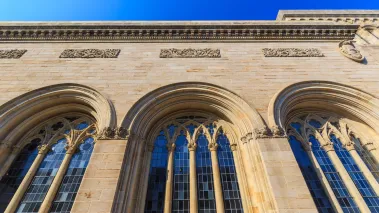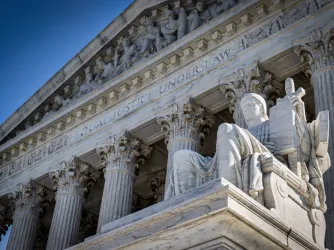Table of Contents
FIRE Statement on Fall 2015 Campus Protests

f11photo / Shutterstock.com
The campus protests that have gripped colleges and universities across the country this fall have brought our campuses to the forefront of the national conversation. As the nation’s leading defender of campus civil liberties, FIRE welcomes the attention now being paid to free speech in the academy and hopes that the ensuing dialogue will have lasting benefits for students, faculty members, and all Americans. Colleges and universities are a critical pillar of our democratic society. As the Supreme Court wrote in the landmark 1957 case of Sweezy v. New Hampshire,
The essentiality of freedom in the community of American universities is almost self-evident. No one should underestimate the vital role in a democracy that is played by those who guide and train our youth. To impose any strait jacket upon the intellectual leaders in our colleges and universities would imperil the future of our Nation… Teachers and students must always remain free to inquire, to study and to evaluate, to gain new maturity and understanding; otherwise our civilization will stagnate and die.
FIRE has received hundreds of inquires from students, faculty, media, and the public about our perspective on this fall’s protests. We are happy to answer these questions here.
First, FIRE does not have a position on the vast majority of the issues and demands raised by protesters this fall. FIRE’s mission is to defend individual rights on campus, including freedom of speech, due process, academic freedom, religious liberty, and the sanctity of conscience. To the extent that the demands of protesters or the actions of college administrators in response do not impinge on these rights, FIRE has no institutional opinion on those demands or actions.
This does not represent a judgment about the importance or validity of the issues raised, or the desirability of the actions taken or decisions made in response. Supporters of virtually every political and social position under the sun may be found on our campuses, and may be relied upon to zealously advocate for their interests. FIRE’s job, in turn, is to zealously advocate for the right of all students and faculty to peacefully participate in the marketplace of ideas, not to pick sides.
An unfortunate fact of many of this fall’s protests, however, is that the demands made by protesters frequently include calls for limitations on expression criticizing or disagreeing with the protesters and mandatory trainings that have the potential to veer into coercion. FIRE’s defense of the right to speak out extends even to those who use this right to call for the silencing of others. Students and faculty are free to call for censorship of views they do not share and the punishment of those who hold those views. If students or faculty peacefully calling for censorship were to be threatened with official punishment simply for making such a call, FIRE would defend their rights to free expression.
This does not mean that FIRE supports calls for illiberal limitations on speech. To the contrary, we believe that such calls are misguided, myopic, and contrary to our nation’s best tradition of free expression. The principles of free expression enshrined in the First Amendment guarantee us all the freedom to peacefully protest and to answer speech with more speech. FIRE reminds students, faculty, and the public at large that the national conversation sparked by this fall’s protests is itself an illustration of the crucial roles that free speech, pluralism, and academic freedom play in our society.
FIRE opposes calls to reduce, eliminate, or violate the freedoms protected by the First Amendment, or by private institutions’ comparable promises. FIRE’s unswerving dedication to the principle of free expression is the very reason that we believe that even those arguing against free expression should be free to do so. At the same time, for the “marketplace of ideas” to survive on campus, calls for punishment of speech and enforced political orthodoxy must not succeed. FIRE will fight to ensure that they do not.
While students and faculty may call for censorship, college administrators and other agents of the college (including student government bodies) may not accede to any such demands. Students, on their own, do not have a responsibility to honor the Constitution or a college or university’s promises about freedom of expression. The same cannot be said for those who represent the institution. Institutionally, colleges and universities must refuse to give into demands that would compromise their ability to be a place where community members, as the Supreme Court wrote in Sweezy, “remain free to inquire, to study and to evaluate, [and] to gain new maturity and understanding.”
Recent Articles
Get the latest free speech news and analysis from FIRE.

The federal charges against Don Lemon raise serious concerns for press freedom

The American people fact-checked their government

California prohibits its teachers from talking about a student's gender identity to their parents. That raises First Amendment concerns.
